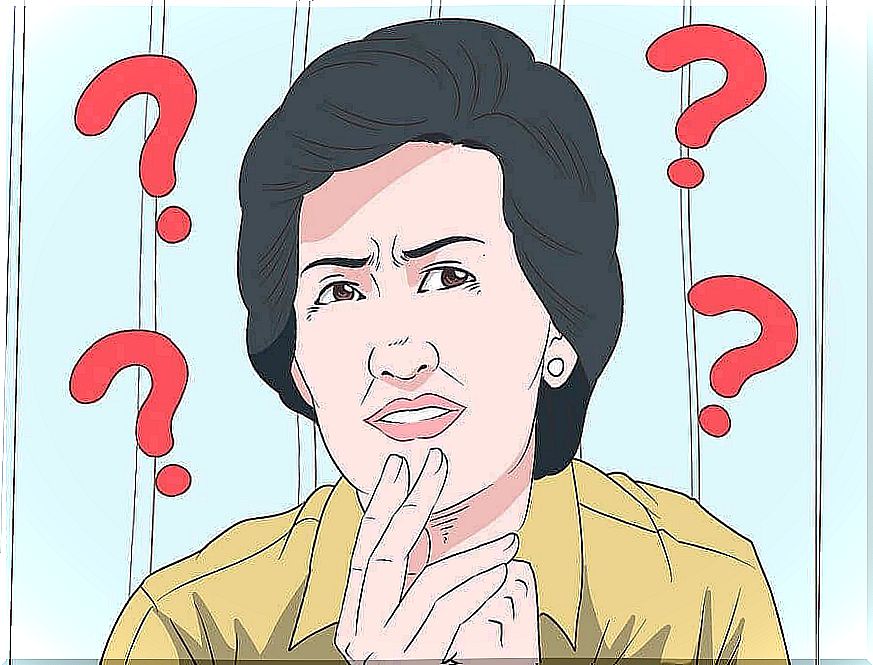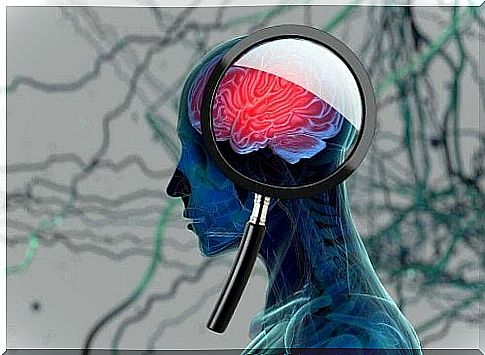Learn How To Detect Signs Of Alzheimer’s Disease

Since this disease usually affects older adults, it is natural to ask: is it possible to detect Alzheimer’s in advance? What signs of Alzheimer’s should we look for? How do I know when it’s time to take my family member to a doctor?
Remember that Alzheimer’s disease is caused by degeneration of brain cells and loss of brain mass. This in turn causes memory loss and affects behavior as well as social interactions.
The reason why an early diagnosis is important is that although Alzheimer’s has no cure, there are certain prescription medications that can slow the progression and relieve some of the symptoms.
Demonstrating signs of Alzheimer’s: is it possible?
Ongoing research is aimed at detecting the onset of this disease at an early stage. However, there are still no decisive methods. What is known is that certain symptoms begin to appear.
A progressive disease

Unfortunately, Alzheimer’s disease worsens over time. However, there are certain stages of the progression that can be identified. In the beginning, the disease is in a mild stage. During this time, the patient becomes a little slower.
They are generally beginning to lose their language skills. In addition, they can also get lost in a conversation and have problems following their own way of thinking, as well as others’. They may also lose their energy and feel exhausted. They may experience difficulties when trying to learn new concepts or perform new tasks.
However, these symptoms are not always noticed and can be confused with the normal aging process.
What are the symptoms?
There are several symptoms during the moderate phase of the disease that are more characteristic of Alzheimer’s and thus easier to identify.
Loss of short-term memory

A recurring symptom in people with Alzheimer’s is their loss of short-term memory. They will not remember what they said a few minutes ago, or they may repeatedly ask the same thing.
They also tend to forget where they have placed certain objects. On the other hand, patients with Alzheimer’s will be able to remember events that happened a long time ago.
Loss of sense of space and time
Some dates will be forgotten, and other references will be lost, such as the seasons. Because of this, it is very easy for people with Alzheimer’s to mess up when they forget how they got to a certain place or which way they took.
Problems with reasoning
Problems arise with reasoning or thinking with numbers, and it becomes impossible for them to create an agenda. Their sequential rational thoughts have changed. This means that it will be difficult for them to have a checkbook or perform activities in steps, such as cooking.
Restrictions on regular daily activities

It can be difficult to take a bath or a shower, to get home, perform work activities and more.
Bad mood
Certain depressive disorders and self-absorption are common, along with anxiety or irritability. In general, the personality of someone with Alzheimer’s will change.
Confusion of images and objects
Changes in vision are also common. There can be complications with reading, judging the distance between things, or with the perception of colors.
Loss of language skills

Alzheimer’s patients will find it difficult to articulate what they are trying to say, and confusion may arise. A common behavioral characteristic is that a person may stop a conversation to try to remember the name of something. They can try very hard without results.
A patient with Alzheimer’s can also find new words when they do not find the right word for a particular thing.
Good judgment disappears
A person suffering from Alzheimer’s can give money to family members or strangers for no reason, or pay more than they should in other situations. They can leave the store without waiting for the change.
In the more advanced stages, it is impossible for the patient to make decisions.
Detecting signs of Alzheimer’s can be very complicated. Not all symptoms occur at the same time or in the same way with everyone.
The best thing to do is go to a specialist when you see symptoms that may be signs of Alzheimer’s. First, any other disorders will be ruled out. Then an appropriate treatment begins.









